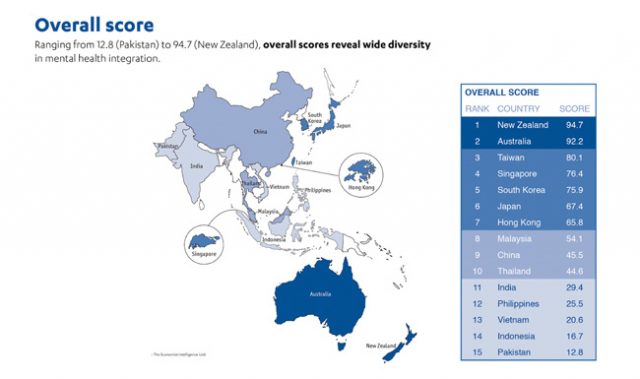
AsianScientist (Oct. 22, 2012) – A new clinical trial set to take place in Australia and New Zealand will test whether vitamin D can prevent multiple sclerosis (MS) in those at risk of developing the disease.
The trial will focus on the possibility of using vitamin D supplementation to prevent a diagnosis of MS following a person’s presentation with the first symptoms that may lead to a diagnosis of MS. It will also test appropriate dosage levels and safety; information that may eventually lead to an effective prevention strategy for MS.
Tasmania, with the highest incidence of MS in Australia, will play a key role in the trial.
The PrevANZ study was launched recently in Hobart by Hon Julie Collins, the Federal Minister for Community Services, the Status of Women and Indigenous Employment and Economic Development in Australia.
“I’m very pleased to be launching this groundbreaking international clinical trial here in Tasmania,” said Minister Collins. “It is great that Tasmanian patients will not only contribute to this research, but could also be among the first to benefit from its results.”
The study is being funded by MS Research Australia (MSRA), through the support of Australian state-based MS societies, especially from Western Australia, Queensland, and Tasmania.
“This is a gold-standard, placebo controlled trial,” said Professor Bruce Taylor, Menzies Research Institute Tasmania and member of the PrevANZ steering committee. “This is the first trial of its kind in the world, to see whether oral Vitamin D supplementation can benefit people who may be in the earliest stages of MS – Australia has a very real opportunity here to help reduce the impact of MS around the world.”
While AU$2.5 million has been secured to commence the trial, a further $1 million is needed to extend the sample size and achieve a robust and conclusive answer. Trial subjects will be recruited solely through neurologists.
Multiple Sclerosis is an inflammatory disease that affects the brain and spinal cord. Though the causes of the disease are unknown, a deficiency of Vitamin D (which is primarily synthesized in the skin by exposure to UV light) is now thought to play a major role in some patients. Three out of four people with MS are women who are usually diagnosed in their 20s and 30s.
——
Source: University of Tasmania.
Disclaimer: This article does not necessarily reflect the views of AsianScientist or its staff.












